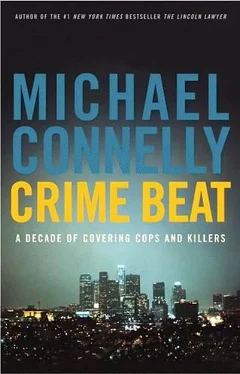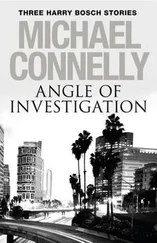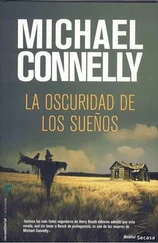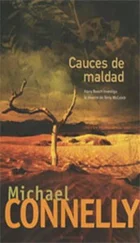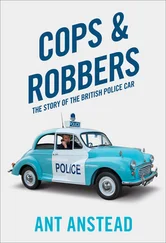Today, a U.S. Justice Department international law specialist said, the Los Angeles unit is in “the forefront of using this tactic.”
Operating under the fugitive division headed by Ross, the foreign prosecution unit is led by two homicide squad veterans, Detectives Zorrilla and Gilberto Moya.
Both see their jobs as equal parts detective work and diplomacy.
The Murder Book
To file cases in Mexico, the unit, whose members are bilingual, compiles a written record of the case in Spanish. Affidavits, witness statements, photographs and descriptions of evidence are put into a report they call the “murder book.”
This consolidation and translation is often the longest part of the procedure, usually lasting several weeks. The Lisa Ann Rosales case filled four thick files.
The district attorney’s office must then formally relinquish jurisdiction of a case, an action that is not taken lightly. Prosecutors acknowledge that because of the U.S. Constitution’s protection against double jeopardy, if they seek trial of a case in Mexico and do not get a guilty verdict, any attempt to refile the charges in the United States would be quickly challenged.
Norman Shapiro, a deputy district attorney who handles the foreign cases, said the decision depends mainly on the prospects for prosecution in the United States and a certainty that the suspect will not return from Mexico.
‘We Have Been Satisfied’
“We have to have solid information that the suspect is down there,” Shapiro said. “When we have that, we have been quite willing to let Mexico prosecute. We have been satisfied with the results.”
Of the 26Los Angeles cases that have made it through the Mexican justice system, according to the foreign prosecution unit, all have resulted in convictions. And although Mexico does not have the death penalty, officers familiar with U.S. cases tried there said prison sentences seem to be slightly longer. Because of differences in laws, making exact comparisons is impossible.
Before the case travels to Mexico, the Mexican Consulate in Los Angeles must certify the authenticity of the investigative documents. In practice, this usually means confirming that a crime was committed and that the investigating officers are legitimate.
Then, once officers have determined through informants and other detective work where a suspect is in Mexico, the unit moves.
Checked Weapons at Border
This year, the detectives have checked their weapons at the border and crossed into Mexico an average of twice a month.
Occasionally they travel with Mexican police to observe the arrests, but most often they wait at police stations or hotels until a suspect is in custody or local police determine that he or she cannot be found. Moya said the officers go to Mexico to streamline the filing process, strengthen relations with authorities there and be available to offer additional case details or even question suspects themselves.
The officers make no secret of the value of the social side of the visits.
“Diplomacy and image are important,” Moya said. “You make concessions, courtesies to their protocol. You pay your respects. We don’t want to meddle in the internal workings of the law enforcement of another country. We work within their customs.”
Protocol Observed
On a recent trip to Mexicali to present evidence in connection with an East Los Angeles murder, Moya and José Herrera, the case detective, did not go directly to the prosecutor who would handle the case.
They first went to see the director of the state police, whose men had caught the suspect a week earlier based on leads Moya and Herrera had provided. Then there were several meetings with Mexican detectives and police administrators to shake hands and pay respects.
The Los Angeles officers offered the Mexicans small gifts of basic equipment not provided by their own department: flashlights, handcuffs, notepads, even bullets. The Californians had purchased the items in the United States with their own money.
When the detectives finally got to the office of Angel Saad, attorney general of the state of Baja, their stay in Mexico was nearly over. Saad looked over the file, grimaced at photographs of the victim’s body and asked detailed questions about the legal and diplomatic procedures they had followed.
After a 45-minute meeting, Saad finally placed the “murder book” in the hands of one of his prosecutors.
Notified of Outcome
In a year or so, after the process of trial and appeal is completed, Mexican authorities will officially notify Los Angeles police of the outcome.
American law enforcement officials acknowledge that procedural differences make it easier to get convictions in Mexico than in the United States.
Once a case is accepted for prosecution in Mexico, a defendant is assumed to be guilty and then has to prove his innocence. There is no bail allowed in murder cases, no jury trials and guidelines on the admissibility of evidence are less stringent.
LAPD foreign prosecution unit officers said they know of no instance in which a witness in a Los Angeles murder case, detectives included, went to Mexico to testify. Instead, Mexican prosecutors rely upon the witness accounts and affidavits supplied by police.
Attorneys Disturbed
That the defendants thus are denied the opportunity to face their accusers, a cornerstone of the U.S. justice system, is disturbing to some attorneys.
“No one says a criminal should go unpunished,” said Jaime Cervantes, a former president of the Mexican-American Bar Assn. in Los Angeles. “But this country has a long-developed concept of how someone is proven guilty of a crime and there is something fundamentally unfair about going to another country to convict and punish them.”
Peter Shey, chairman of the international law committee of the local National Lawyers Guild, also questioned the Mexican prosecutions.
“Basic notions of fundamental fairness are either nonexistent or rarely employed in their justice system,” Shey said. “If people are required to stand trial in Mexico for crimes in the United States, they would be placed at a significant disadvantage.”
‘A Jaundiced Eye’
Lt. Ross, the unit’s supervisor, said he believes that such concerns are unfounded.
“I think a lot of people have tended to view Mexican justice with a jaundiced eye,” he said. “But that is an American perception and it is a misconception. Mexico has a very legitimate legal system that operates very well.”
Ross and his fellow officers contend that a murder suspect who flees to avoid prosecution in Los Angeles is accepting the justice system of the country he runs to.
“You have to accept the risks that you have incurred by fleeing,” Moya said.
Much like the LAPD unit, the California attorney general’s office has developed specialists in bringing cases to Mexico. The state’s chief expert is Ruben R. Landa, a special agent with the attorney general’s office in San Diego, who took his department’s first murder case to Mexico in 1980.
70 Murder Cases Brought
Since then, Landa has helped various California police departments bring 70 murder cases to Mexico, 14 so far in 1987, more than in any previous year. About 20 of the cases have worked their way through Mexican courts, he said, all resulting in convictions, although one of those was thrown out on appeal.
“Now it’s sort of snowballing,” he said. “More and more detectives are finding out that this is a way to go with their cases.”
One benefit for U.S. authorities is financial. Mexico pays for prosecuting the cases, and police officials estimate that it costs American taxpayers less than $1,000 in travel and other expenses to bring a case there, an amount that pales in comparison to the costs of jailing, prosecuting and defending a murder suspect in Los Angeles.
Читать дальше
